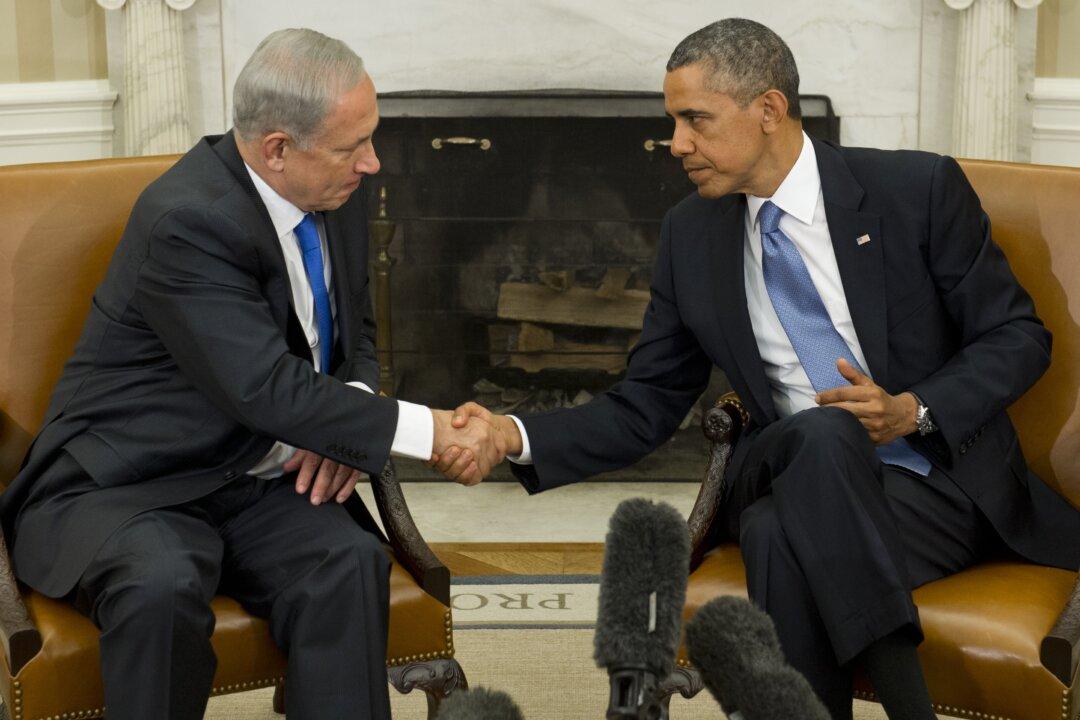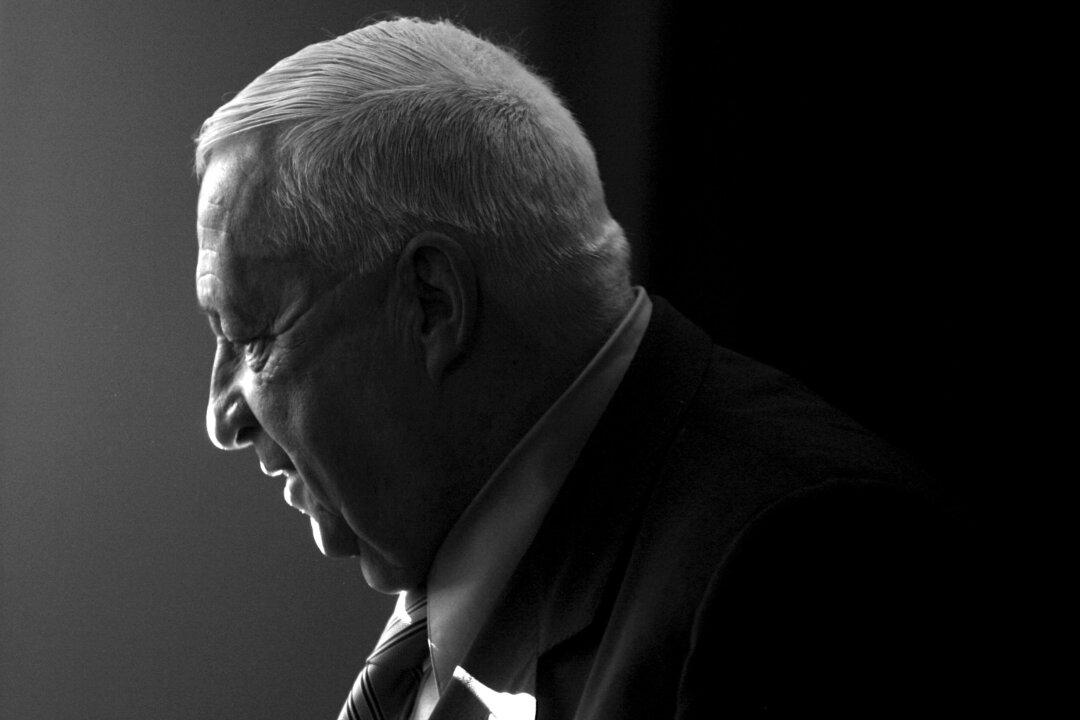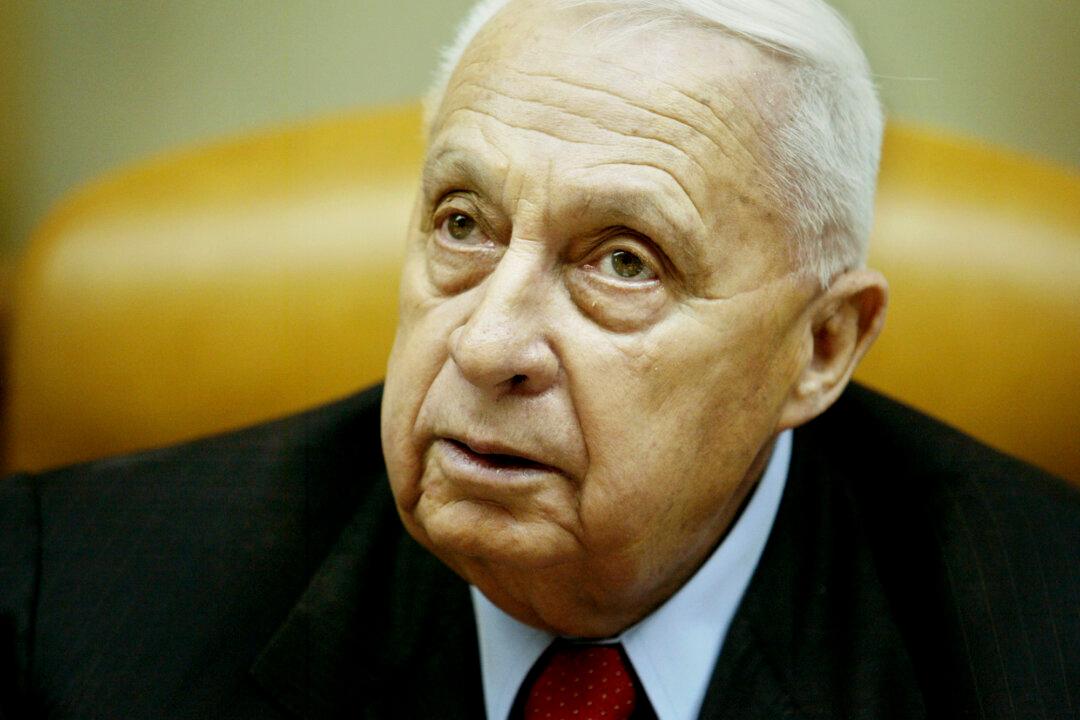TEL AVIV—Israeli Prime Minister Benjamin Netanyahu on Monday urged President Barack Obama to keep tough economic sanctions on Iran in place, even as the United States weighs the possibility of restarting nuclear negotiations with Tehran’s new government.
“If diplomacy is to work, those pressures must be kept in place,” Netanyahu said during an Oval Office meeting with Obama.
The two leaders met at the White House just days after Obama’s historic phone call with new Iranian President Hassan Rouhani. The 15-minute call marked the first direct conversation between U.S. and Iranian leaders in more than 30 years.
Before leaving Israel at Ben Gurion Airport, Netanyahu sent a message to the Israeli people, saying “I will tell the truth in the face of the sweet-talk and the onslaught of smiles.”
Calls for a Diplomatic Solution
Netanyahu has received broad support from his Cabinet and Parliament members on his position toward the recent Iranian outreach. However, some are calling on the prime minister to explore the possibilities of a diplomatic solution.
Notably Israeli President Shimon Peres has taken a more moderate tone than Netanyahu.
Peres, who is currently travelling in Europe, said in response to Iranian President Hassan Rouhani’s speech at the U.N., “I hope that we are hearing a new voice coming from Iran; the sanctions are doing their job.”
If we could bring an end to Iran’s nuclear arming, and fix things in the world without war then that is the preferred option.”
In an interview with the Israeli army radio station, former Intelligence Minister Dan Meridor from Netanyahu’s Likud party, said that the change expressed in Rouhani’s speech proves that the international sanctions worked very well. He also suggested using diplomacy.
Obama credited the flurry of U.S. sanctions that have crippled Iran’s economy with bringing Rouhani to the negotiating table. While he said it was important to “test diplomacy,” the president also said on Monday that Rouhani must back up his more conciliatory words with actions that give the international community confidence that Iran is not seeking to produce a nuclear weapon.
The sudden prospect of diplomacy with Iran overshadowed a host of pressing issues on the U.S.–Israeli agenda. Netanyahu has long been skeptical of Obama’s preference for negotiating with Iran, repeatedly pressing his U.S. counterpart to issue credible threats of military action if Tehran gets close to producing a nuclear weapon.
Opposition leader Labor Chairwoman Shelly Yachimovich said on Sunday, “If there is a chance to stop the Iranian nuclear project with diplomatic efforts, we should explore it meticulously.”
Divisions in Israeli Media
Divisions on how to approach Iran’s current outreach have also been shown in Israeli media.
Dan Margalit, a journalist for the Israel HaYom newspaper, described on Monday in his daily column Rouhani’s words as “a clear outline of fraud” and the U.S. diplomatic attempt with Iran as dangerous.
However, Ben Kaspit, a political analyst for various Israeli newspapers wrote in Al-Monitor website, “Netanyahu’s problem will be that he is swimming against the current.”
The Associated Press contributed to this report.




